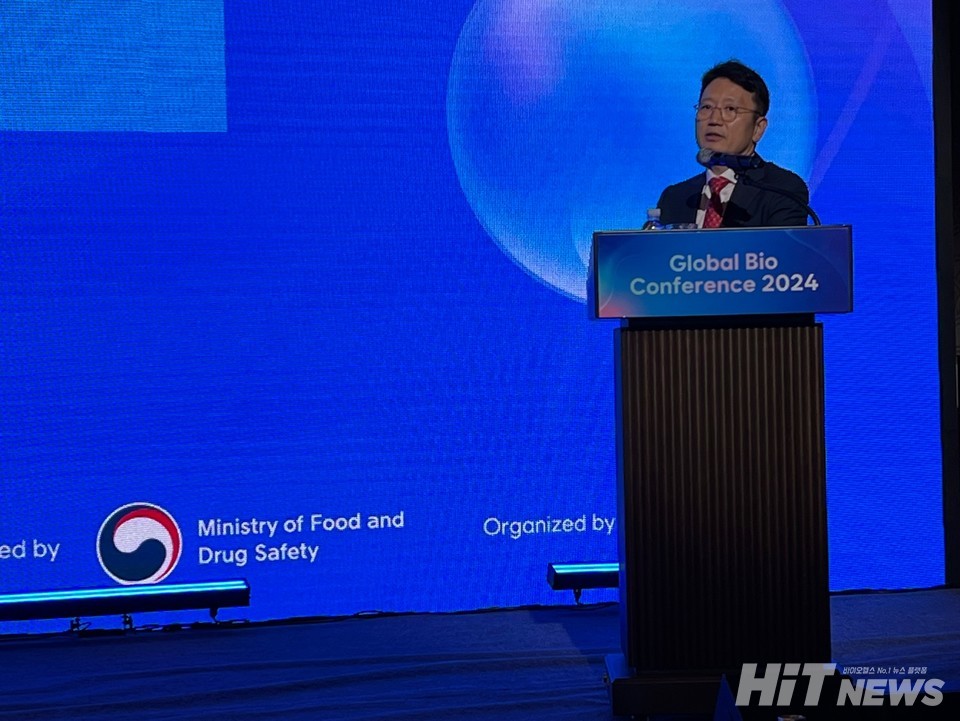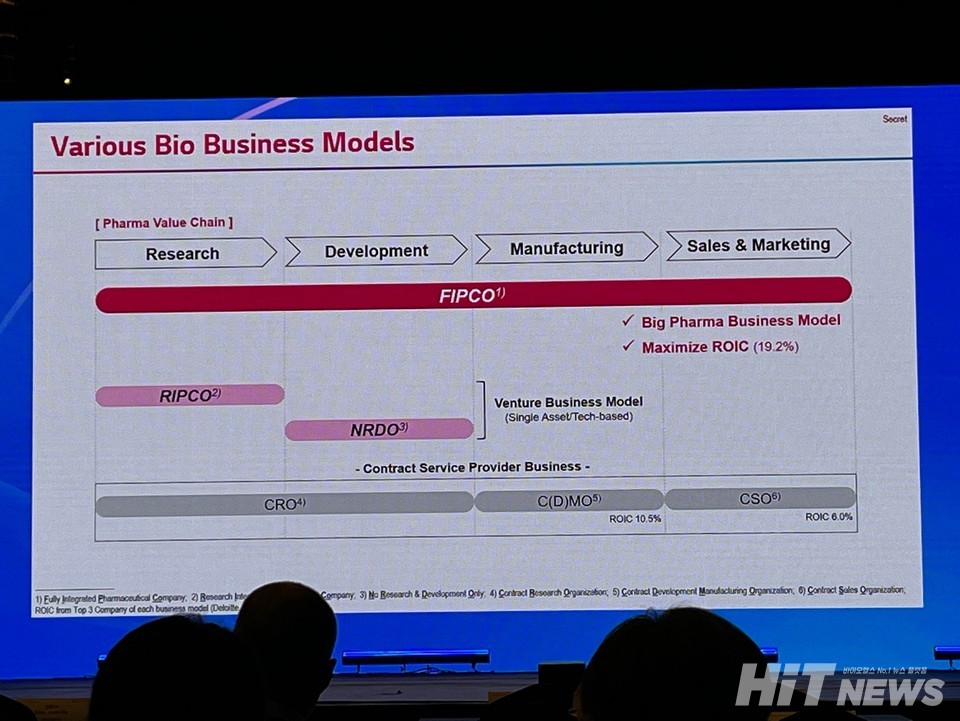Biopharma Industry Needs to Move Beyond Past Success Models
Emphasis on FIPCO, RIPCO, NRDO, and CDMO Business Models

LG Chem is advancing its biopharma ambitions through open innovation, actively engaging in global research collaborations and partnerships. The Life Sciences Division aims to evolve into a Fully Integrated Pharmaceutical Company (FIPCO).
On September 4th, Ji-Woong Son, President of LG Chem's Life Sciences Division, shared the company’s biopharma roadmap at the Global Bio Conference hosted by the Ministry of Food and Drug Safety (MFDS). His presentation, titled "Building an Innovative Ecosystem to Lay the Foundation for the Biopharmaceutical Industry and New Drug Development," outlined LG Chem's vision for future growth in the sector.
Son highlighted the initiatives of major Asian nations in fostering their biopharma industries, noting Singapore's focus on biotechnology agendas and significant investments in R&D and biotech ventures. He also referenced Japan's "Society 5.0" initiative, which integrates biotechnology as a core component of value creation.
For South Korea, Son advised that the biopharma sector requires tailored strategies that differ from traditional economic growth models. He remarked, "The factors that drove Korea's past growth—government-led development, vertical integration, and a stable international trade environment—are not directly applicable to the biopharmaceutical industry."
He emphasized that innovation in biopharma thrives on collaboration rather than vertical integration, pointing out that the sector is characterized by high risk and high reward, demanding value-based competitiveness.

Son introduced a variety of business models shaping the biotechnology landscape, such as FIPCO (Fully Integrated Pharmaceutical Company), RIPCO (Research Intensive Pharmaceutical Company), NRDO (No Research, Development Only), and CDMO (Contract Development and Manufacturing Organization). He cited Silicon Valley as a leading example of these models in action.
In closing, Son underscored the need for open innovation to drive the growth of a sustainable biopharmaceutical ecosystem. "A robust investment environment, supported by angel investments, venture capital, private equity funds, and mergers and acquisitions, is essential for the success of this ecosystem," he concluded.

